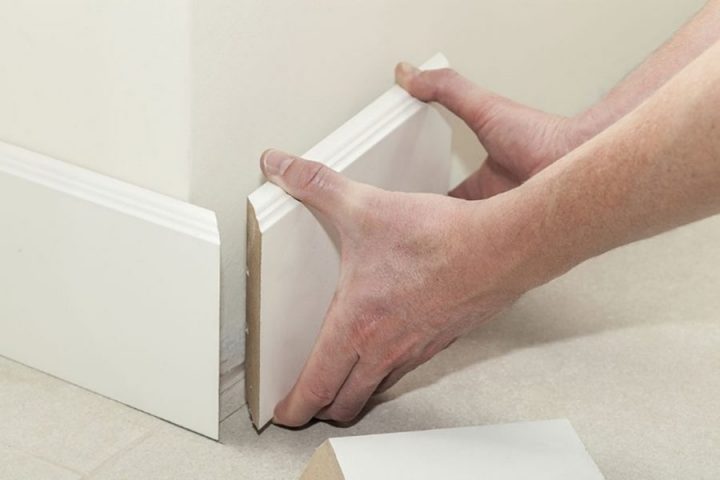Moving house is challenging, more challenging than others think. There are many factors to consider before moving into your newly purchased home. It requires you to become familiar with your home, learn how it works, and set priorities for the project.
When moving home, you must be organised and have the plan to make the process as easy as possible. Therefore, here we will go through what to do when you first move into your house to make the process a lot simpler for you.

Walkthrough Of Your New Home
When your new home is empty, there is no better time to conduct a thorough walkthrough. As a result, make one last inspection before moving anything in.
It is critical to verify that everything that is part of the purchase is in the home and that the previous owner has completed all the agreed-upon repairs. Ensure the house is clean and devoid of filth, debris, mould, and bugs and that all the outlets, switches, fixtures, doors, and windows are in working order. Ensure all your furniture fits, and the lawn is in good condition.
Call your agent to determine your options when you discover a problem that breaks the selling contract. You are now responsible for any problems you discover that your contract does not address.
Figure Out Where Your Furniture Can Go
Create a plan for setting everything up before moving into a new house rather than winging it. You’ll save a significant amount of time and effort. This is especially true of substantial, heavy objects like furniture. Even though you probably already have a general sense of what belongs in each area, take a moment to consider your ideal set-up. Of course, you can alter your mind afterwards, but making a rough plan before starting this activity will always simplify it.
Change The Locks
The place where you and your family feel the most comfortable is at home. It would help if you made every effort to keep it free of danger and to give you and your family a constant sense of security.
Restricting unauthorised access, including incursions, burglaries, break-ins, or even uninvited visitors, is the cornerstone of home security. Focus on the main entrance points, which are the front and back doors, when discussing access restrictions, and make sure they are protected using high-quality locks.
Anyone with access to these locks has access to your home because they prevent unauthorised entry. Most people make extra house keys for backup purposes and to share with family and friends. To have a spare key or to change the locks on your property and receive new keys, you can accomplish this by hiring a locksmith.
As well as the front and back doors, you should also take the time to change the locks in the interior too. By updating your window and door latch, every section of your home will be safe from intruders, which can be particularly helpful if you are on holiday or out for the day. All security locks have the same function, but be sure to buy those that have the ability to protect your home to the highest quality.
Get The Correct Insurance Cover
It would be advisable if you got appropriate contents insurance to guarantee that the full value of your possessions is covered in the event of theft or damage.
You’ll probably require some structured insurance as of the exchange date, and it’s simple to overlook adding a contents policy when the transaction is complete.
Furthermore, remember that you must add any items you purchase for your new residence to your insurance policy and your current possessions. This will ensure that they are protected when you move.
Yet, this term encompasses more than furniture and personal items; you should also consider your drapes, rugs, and white goods. Again, consult your insurance company or broker for guidance if you need more clarification.
File And Retain Paperwork
When you move into your new house, it is the ideal moment to organise your legal affairs.
If this is your first house, consider creating a will to ensure your assets are allocated according to your wishes if something happens to you.
Also, it will be wise to store the documents related to the acquisition properly and securely before the transfer because they will need to be quickly accessible for use as a reference when you want to sell your home.
Furthermore, if you make any changes to the property, keep the associated documentation safe.
Change Address
You must make sure that you change your address anywhere it is kept on record. This is whether for identification purposes, with your local surgery, or with businesses you do business with.
The conditions of the policy are partially based on your address. Therefore, updating your auto insurance policy address should be a top priority.
Likewise, it’s important to update your address on your driver’s licence and the DVLA’s car ownership certificate (V5C), which is easy to accomplish online.
If you fail to let the DVLA know of a change of address, you risk receiving a fine of up to £1,000.
Set-Up Utilities
Hopefully, you set up your utilities before moving into your new house; if so, now is the time to ensure everything is set up and functioning as it should. Ensure your electric, gas, water, heating and cooling, phone, and internet are ready before moving. Afterwards, contact your local waste management company to confirm that rubbish pickup is also set up for your new home.
Find The Water Valve And Fuse Box
You must avoid searching for the fuse box or the water valve when needed. It is far preferable to locate your water valve and fuse box immediately so that you can get there quickly if your power goes out or you need to cut off the water for some reason. Your fuse box is typically in your basement, garage, or storage space. The water valve for your house is often located someplace towards the exterior of the building.
Do A Deep Clean On Your Home
The best time to thoroughly clean your new house is immediately after relocating, even though it’s the last thing on your list that you want to do after moving.







